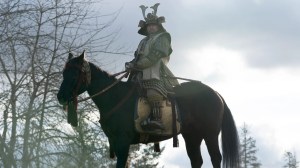Neon Genesis Evangelion may have ended its official run many years ago, but the series is still one of the most popular anime series of all time. In fact it’s so popular, it’s still getting new material.
Videos by ComicBook.com
With the Radio EVA merch store celebrating its tenth anniversary this year, Studio Khara designed a new bit of character art featuring the characters in pretty fashionable duds.
The visual sees the fan-favorites in distinct, fashionable clothing that’s actually available from Radio EVA itself. Each character’s outfit outlines a particular style for each of them, and is also available to purchase. You can check out the breakdown of each outfit and character style at the link here as well. Radio EVA wants to use this collaboration to break into the future, and if it’s as impressive in real life as it is in the art then that will not be a problem.
This is only one of the ways Neon Genesis Evangelion is being kept alive, however. The series will be releasing its final film, Evangelion 3.0 + 1.0, in 2020, and while that seems like a long time from now it’s an even longer wait for those who have been wanting to see the final film since it was announced in 2012. If the film does release in 2020, it will be eight years long in production. Though it’s a relief to hear it’s still being worked on.
Neon Genesis Evangelion is a psychological drama by way of giant monster versus mech anime. The franchise debuted as a television series in 1995-1996 with two films following in 1997. Neon Genesis Evangelion: Death & Rebirth is an one-part drastically abridged retelling of the first 24 episodes of the television series, and one part new animation. The End of Evangelion, the second film, would incorporate some of Death & Rebirth’s original animation and offer an alternate take on the original series’ controversial final two episodes.
The series follows Shinji Ikari, who is recruited by his father to pilot the giant mech Evangelion in the fight against giant monsters known as Angels in the futuristic city of Tokyo-3. But Shinji is unwilling to bear this huge responsibility and is often conflicted about taking part in a war he was dragged into. This conflict of emotions leads to many introspective episodes that cover the range of religious, philosophical, and existential concepts.








